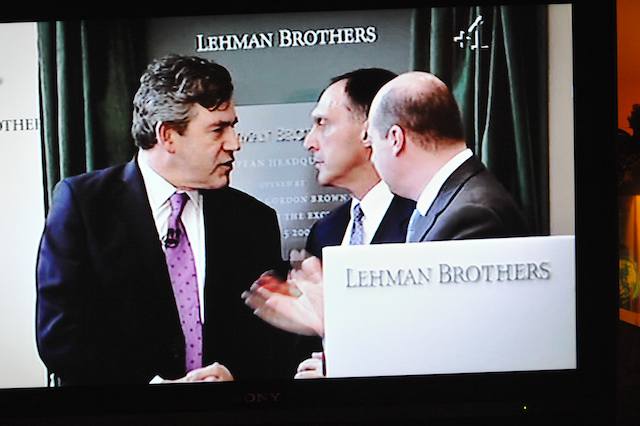“When I was young and naïve”, writes Paul Krugman, “I believed that important people took positions based on careful consideration of the options. Now I know better.”
Yep. Me too. Long ago I decided that the null hypothesis should be that — in public life and management at least — Nobody Knows Anything.
“Much of what Serious People believe”, Krugman goes on, “rests on prejudices, not analysis. And these prejudices are subject to fads and fashions.”
For the last few months, I and others have watched, with amazement and horror, the emergence of a consensus in policy circles in favor of immediate fiscal austerity. That is, somehow it has become conventional wisdom that now is the time to slash spending, despite the fact that the world’s major economies remain deeply depressed.
This conventional wisdom isn’t based on either evidence or careful analysis. Instead, it rests on what we might charitably call sheer speculation, and less charitably call figments of the policy elite’s imagination — specifically, on belief in what I’ve come to think of as the invisible bond vigilante and the confidence fairy.
Bond vigilantes are investors who pull the plug on governments they perceive as unable or unwilling to pay their debts.
Now there’s no question that countries can suffer crises of confidence (see Greece, debt of). But what the advocates of austerity claim is that (a) the bond vigilantes are about to attack America, and (b) spending anything more on stimulus will set them off.
Which brings us to Slasher Osborne and his fag, Danny Alexander. Time and again, their mantra is our old friend TINA (There Is No Alternative). If we don’t slash public expenditure then the Bond Vigilantes will come and get us. There is, of course, no evidence that the bond market would do to the UK what it threatens to do to Greece. Nor could there be. The essence of these kinds of markets — based on that intangible thing, “confidence” — is that there’s no knowing what they might do, and you can’t base national policy on considerations as irrational as that. Otherwise you wind up with the economic counterpart of the National Security State, which can devise any rationale — no matter how absurd — for curtailing freedoms on the grounds that Al Qaede could conceivably exploit the ‘loopholes’ that such freedoms provide. (As an example, think of the obsession with stopping photographers from photographing public buildings.)
It should be obvious to the meanest intelligence that slashing public spending when the economy is on a tentative recovery from recession is a sure way of triggering another, deeper, recession. And of course Slasher knows that, as do his counterparts in the US. But here another chimera comes to their aid, namely what Krugman calls the “Confidence Fairy”.
But don’t worry: spending cuts may hurt, but the confidence fairy will take away the pain. “The idea that austerity measures could trigger stagnation is incorrect,” declared Jean-Claude Trichet, the president of the European Central Bank, in a recent interview. Why? Because “confidence-inspiring policies will foster and not hamper economic recovery.”
What’s the evidence for the belief that fiscal contraction is actually expansionary, because it improves confidence? (By the way, this is precisely the doctrine expounded by Herbert Hoover in 1932.) Well, there have been historical cases of spending cuts and tax increases followed by economic growth. But as far as I can tell, every one of those examples proves, on closer examination, to be a case in which the negative effects of austerity were offset by other factors, factors not likely to be relevant today.”
Oh, and if you’re in any doubt about what really savage public spending cuts can do to an economy, then have a look at my own dear homeland, which was recently the subject of an illuminating piece in the New York Times.
Nearly two years ago, an economic collapse forced Ireland to cut public spending and raise taxes, the type of austerity measures that financial markets are now pressing on most advanced industrial nations.
“When our public finance situation blew wide open, the dominant consideration was ensuring that there was international investor confidence in Ireland so we could continue to borrow,” said Alan Barrett, chief economist at the Economic and Social Research Institute of Ireland. “A lot of the argument was, ‘Let’s get this over with quickly.’ ”
Rather than being rewarded for its actions, though, Ireland is being penalized. Its downturn has certainly been sharper than if the government had spent more to keep people working. Lacking stimulus money, the Irish economy shrank 7.1 percent last year and remains in recession.
Joblessness in this country of 4.5 million is above 13 percent, and the ranks of the long-term unemployed — those out of work for a year or more — have more than doubled, to 5.3 percent.
Now, the Irish are being warned of more pain to come.
More ‘pain’? (That word again.) Yep. Because of course the Bond Vigilantes aren’t satisfied yet.
was devoted to a gripping paen of praise for Dell’s lean, mean and tightly-integrated supply chain.

